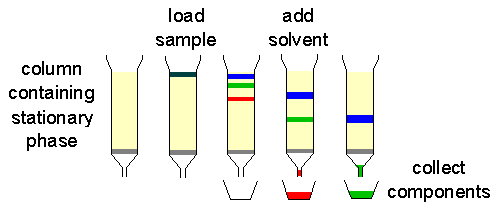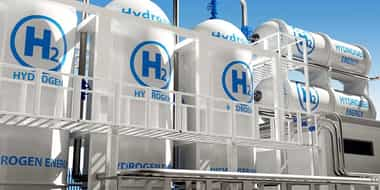For many diseases, catching and treating the disease in its early stage offers the optimal chance for a positive outcome. Some cancers can take months or years to appear, a time during which the disease may spread and significantly alter prognosis and treatment.
For example, early detection and treatment of ovarian cancer can lead to a five-year survival rate of more than 90%. But with later stage detection, the five-year survival rate drops to about 40%.
According to a recent research study published in Nature’s online journal, “The disease is essentially asymptomatic until late stages when the 5-year relative survival rate is <44%. For this reason, considerable effort has been focused on the development of a screening test to diagnose OC early in its progression.”
And that screening test has been developed by the authors of that very study, a research team based at the Georgia Institute of Technology. Using liquid chromatography and mass spectrometry to separate and identify the metabolites from blood samples of early-stage ovarian cancer patients, the team evaluated the metabolites for their predictive value towards a diagnosis of ovarian cancer using a computer algorithm.
The team partnered with the Ovarian Cancer Institute to develop the method.
“By the time ovarian cancer is detected, it’s usually too late,” said Dr. Benedict Benigno, founder and CEO of the Atlanta-based OCI. “Existing screening methods such as pelvic examinations, ultrasounds and CA-125 blood tests are notoriously unreliable. It was so frustrating to encounter newly diagnosed patients, who had experienced symptoms for only a few weeks, in such advanced stages. We are thrilled to provide women with such a highly accurate test.”
WHAT IS CHROMATOGRAPHY?
Chromatography is a technique that separates the components, or solutes, of a mixture on the basis of the relative amounts of each solute distributed between the mobile and stationary phases. The mobile phase may either be a liquid or gas, while the stationary phase is either a solid or a liquid. Partitioning principles are used to separate proteins, nucleic acids or small molecules in complex mixtures on the basis of their differing interactions with a stationary and mobile phases.
Chromatography is broadly classified into liquid chromatography (LC), gas chromatography (GC), and both LC and GC can be used for either preparative or analytical applications.
OKAY, WHAT IS LIQUID CHROMOTOGRAPHY?
Liquid chromatography is a chromatographic technique that involves liquid as a mobile phase,
explains Shalini S. Dewan, an analyst with BCC Research.
“Liquid chromatography separates a mixture of compounds in analytical chemistry and biochemistry-based research. It is used to separate a sample into its individual parts. This separation occurs on the basis of interactions of the sample with the mobile and stationary phases.”
As part of its research, the team used ultra-performance liquid chromatography, high-resolution mass spectrometry (UPLC-MS), which is a technique that “combines the physical separation capabilities of liquid chromatography with the mass analysis capabilities of mass spectrometry,”
according to Wageningen University.
WHAT IS HIGH-PERFORMANCE LIQUID CHROMATOGRAPHY?
“HPLC is a separation technique that utilizes a liquid mobile phase to separate components of mixture. High pressure is used to push solvent through the column,” says Dewan. “It is ideally suited for separation and identification of amino acids, proteins, nucleic acids, hydrocarbons, carbohydrates, pharmaceuticals, pesticides, pigments, antibiotics, steroids and a variety of other inorganic substances.”
She says the development of ultra- or high-performance liquid chromatography/mass spectrometry (HPLC/MS) systems has provided “chemical analysts with an ability to analyze almost any molecular species as well as thermally labile, non-volatile and high molecular weight species.”
HPLC/MS HELPSING TO SPUR DEVELOPMENT OF CANCER DETECTION METHODS
Among cancers specific to women, ovarian cancer is the leading cause of death in the U.S., according to the Ovarian Cancer National Alliance. More than 22,000 new cases of ovarian cancer are diagnosed annually. Ovarian cancer is often diagnosed in late stages, due to vague symptoms that mimic gastrointestinal disorders.
“We are extremely optimistic that our findings will lead to a highly accurate, non-invasive clinical procedure to detect ovarian cancer very early in its development,” said John McDonald, OCI Chief Research Officer. “By detecting cancer before symptoms even manifest, more women will be able to seek treatment before the cancer spreads. This, in turn, increases survival rates significantly and these patients can go on to live healthy lives.”
Dewan says that “liquid chromatography (LC) has proved to be a boon for the life sciences and pharmaceuticals industries as it has the ability to segregate a wide variety of chemical mixtures.” She says commercial applications such as drug development and quality assessment of pharmaceuticals and biopharmaceutical products “have broadened the scope of LC applications, and has become the primary growth factor for this market. The greater efficiency level offered by LC is another driving factor for this market.”
The global market for LC reagents grew to $3.8 billion in 2013 as compared to $3.6 billion in 2012. The markets for solvents and chemicals were $1.8 billion and $1.9 billion in 2013. The markets for solvents and chemicals will continue to grow at respective CAGRs of 4.8% and 5.1% to reach $2.4 billion and $2.6 billion by 2019. This market is expected to rise at a CAGR of 5% and reach nearly $5.1 billion by 2019, Dewan predicts.




